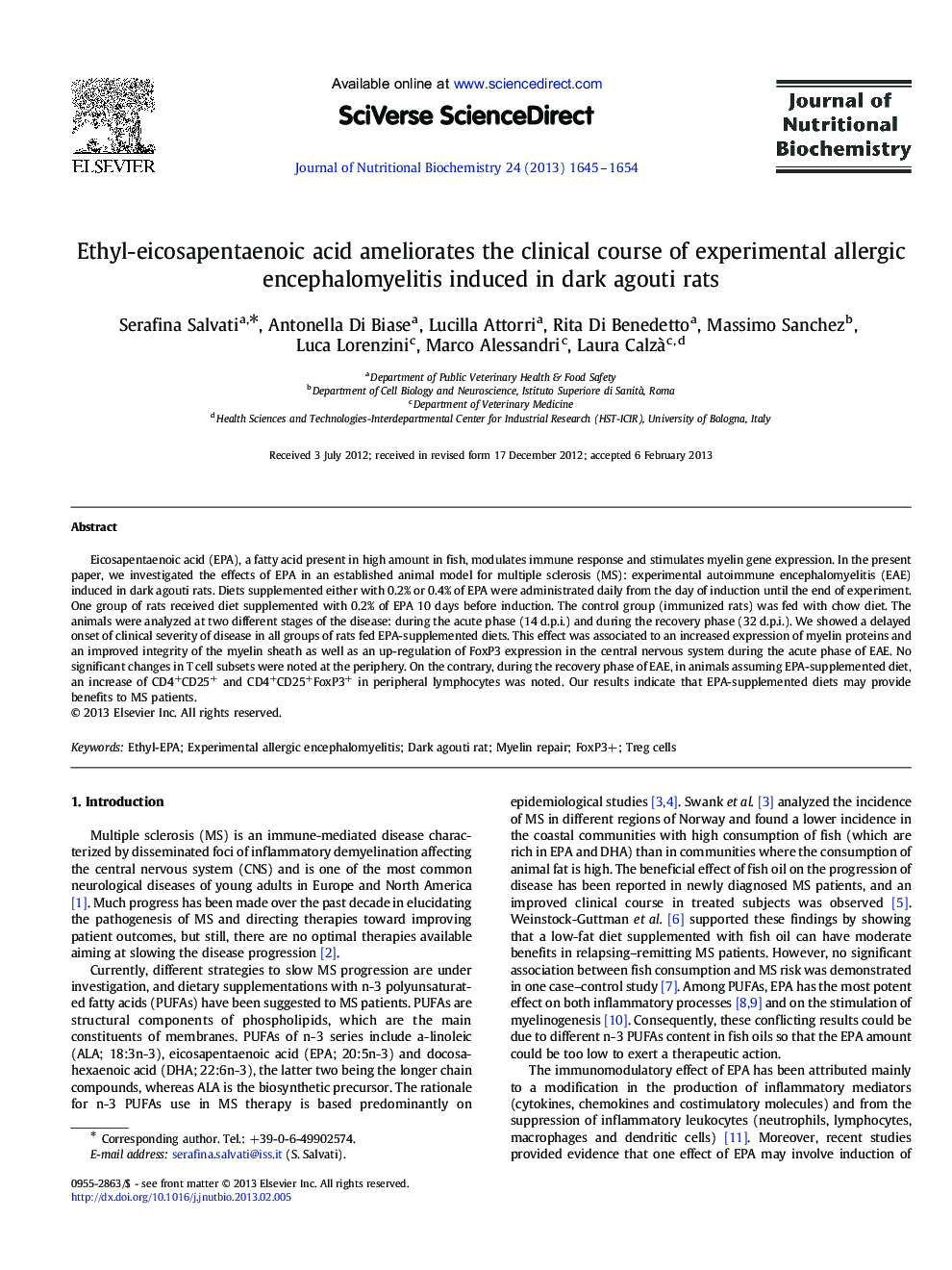| Article ID | Journal | Published Year | Pages | File Type |
|---|---|---|---|---|
| 1989977 | The Journal of Nutritional Biochemistry | 2013 | 10 Pages |
Abstract
Eicosapentaenoic acid (EPA), a fatty acid present in high amount in fish, modulates immune response and stimulates myelin gene expression. In the present paper, we investigated the effects of EPA in an established animal model for multiple sclerosis (MS): experimental autoimmune encephalomyelitis (EAE) induced in dark agouti rats. Diets supplemented either with 0.2% or 0.4% of EPA were administrated daily from the day of induction until the end of experiment. One group of rats received diet supplemented with 0.2% of EPA 10 days before induction. The control group (immunized rats) was fed with chow diet. The animals were analyzed at two different stages of the disease: during the acute phase (14 d.p.i.) and during the recovery phase (32 d.p.i.). We showed a delayed onset of clinical severity of disease in all groups of rats fed EPA-supplemented diets. This effect was associated to an increased expression of myelin proteins and an improved integrity of the myelin sheath as well as an up-regulation of FoxP3 expression in the central nervous system during the acute phase of EAE. No significant changes in T cell subsets were noted at the periphery. On the contrary, during the recovery phase of EAE, in animals assuming EPA-supplemented diet, an increase of CD4+CD25+ and CD4+CD25+FoxP3+ in peripheral lymphocytes was noted. Our results indicate that EPA-supplemented diets may provide benefits to MS patients.
Related Topics
Life Sciences
Biochemistry, Genetics and Molecular Biology
Biochemistry
Authors
Serafina Salvati, Antonella Di Biase, Lucilla Attorri, Rita Di Benedetto, Massimo Sanchez, Luca Lorenzini, Marco Alessandri, Laura Calzà ,
